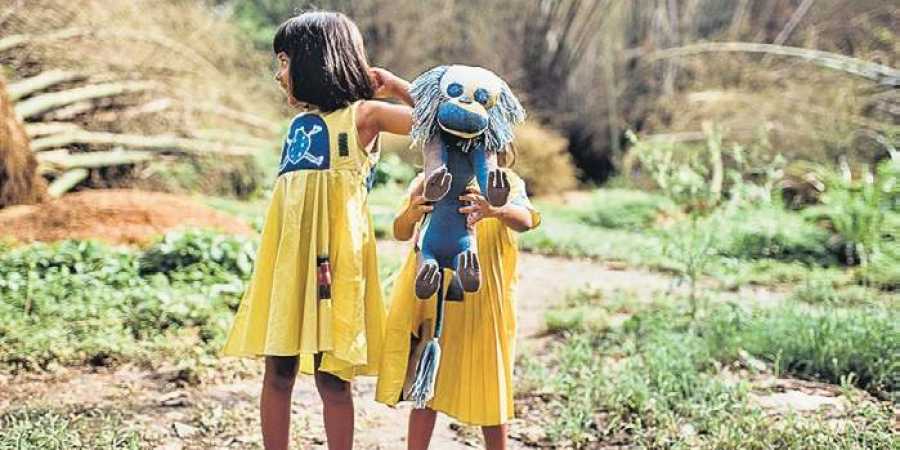The art of hand block printing has crossed regional borders and is creating a niche for itself in the city hub.
Bengaluru :
The art of hand block printing has crossed regional borders and is creating a niche for itself in the city hub.This century-old art form utilises a hand carved teak wood that is dipped in dye and stamped by hand onto cotton or silk.
In Bengaluru, Pooja Gokul a 32-year-old keeps this ancient art new and driven by conducting workshops regularly. She is also the founder of Block Beauty, an organisation specialising in block printing, which makes products such as sarees and handbags.
“The time taken to make a block depends on the design and size,” says Pooja. “It takes about six hours to create a saree with any desired design by our professional printers,” she adds. Popular in South India, the process, though artistic, is rather slow.
It is an ancestral skill, passed down from one generation to the next. The process begins with carving the block in a desired design, followed by the application of colour paste. The dye is pat before being pressed onto the fabric. Next step is removing the starch, which makes the fabric undergo soft bleaching. The last step is printing cloths and letting it dry in the sun.As complicated the art might sound, Pooja Gokul, a graduate from Chitrakala Parishat says it is can be mastered through workshops and YouTube tutorials.
“ I was passionate about art and design and it was always my dream to make block printing a popular art form in my own style. My initial years as an artist was a combination of learning and creating art,” shares Pooja. She further adds that it was important for her to create a balance between expressing her art and being accepted as an artist. “Thus began my teaching career,” she explains.
Handmade wooden blocks can be made of box, lime, holly, sycamore, plane or pear wood. But Pooja prefers teak since she believes in the idea of strength and indestructibility of wood. A lot of traditional, modern and popular culture designs are carved into blocks and designs are inspired by nature.
As an artist of block printing, she adores the work of Gustav Klimt, an Austrian symbolist painter and says she is intrigued by the use of gold foil in his art.
The workshops are conducted twice a month and the next one is scheduled on November 15 at the Block Beauty studio located in Domlur Layout. The beginners will learn about the origins and process of hand block printing besides familiarising themselves with the procedure of making blocks and the social symbolism of motifs.
Hand-on workshop of block-printing on paper and cloth will be conducted. “This will give an insight on the challenges of this fun art,” says Pooja. Starter kits are available online on their e-commerce website.
source: http://www.newindianexpress.com / The New Indian Express / Home> Cities> Bengaluru / by Zoya Nasir / Express News Service / November 14th, 2017







